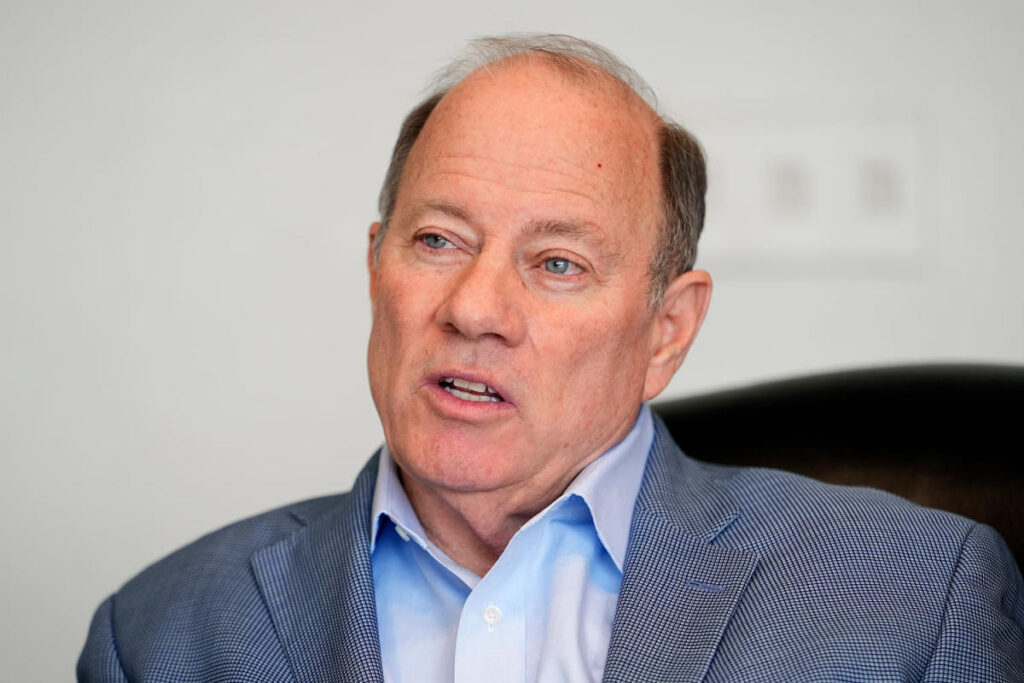Amid the political frenzy surrounding President-elect Donald Trump’s transition, a significant and potentially transformative political narrative is unfolding in Michigan, primarily centered around Detroit Mayor Mike Duggan’s recent announcement to run for governor as an independent in 2026. This surprise decision comes after decades of active involvement with the Democratic Party, and it has sent shockwaves through the Michigan political landscape. Duggan’s choice to avoid a potentially contentious primary against prominent Democratic candidates like Secretary of State Jocelyn Benson and Lt. Gov. Garlin Gilchrist speaks to the challenges he perceives within his party. His son, a strategist for the Biden campaign in Michigan, had been rumored to be laying the groundwork for Duggan’s 2026 bid, which adds another layer to the shock for Michigan Democrats. This unexpected shift leads to a broader conversation about the viability of running as an independent in a polarized political climate.
Historically, politicians who transition from major parties to run as independents do so out of necessity, typically fearing they would not receive adequate support from primary voters or that their positions would be more appealing in a general election setting. Duggan’s strategy is noteworthy, particularly given Michigan’s electoral structure that still permits straight-ticket voting, complicating the path for independent candidates. The state’s political landscape has not favored independents, and Duggan’s path will be fraught with difficulties. Nonetheless, the business support he may receive from prominent backers like Rocket Mortgage founder Dan Gilbert and JPMorgan Chase CEO Jamie Dimon could potentially bolster his independent campaign.
Duggan’s choice to run as an independent may be a calculation based on the current political environment, where voters appear to be disillusioned with traditional party politics. In today’s highly polarized landscape, there may be more appeal for an independent candidate who emphasizes an ability to sidestep party dogma in favor of pragmatism—a position which resonates with voters tired of the partisanship that has characterized contemporary politics. Duggan’s rationale for his party shift underscores a commitment to a problem-solving ethos over political allegiance, suggesting that in a time of increased political cynicism, catering to a broader, more moderate electorate may prove advantageous.
The landscape of independent candidacies is shaped largely by historical precedents, with successful independents generally fitting into distinct categories: those who align with one of the major parties, prominent political figures running on their own, or candidates leveraging celebrity status. Considering Duggan’s established political profile as a former Democratic mayor with a track record, he fits best into the second category. Yet, he faces an uphill battle in overcoming entrenched political loyalties and a divided electorate, particularly if both major parties present candidates perceived as electable. The likelihood of a three-way race may eventually work against him, as history suggests that independent candidates often struggle to maintain momentum in such scenarios.
Despite the structural challenges, Duggan’s independent run could have significant implications for both the Democratic and Republican primaries. A successful campaign would not only alter the dynamics within the two parties but could ignite more profound ideological conflicts within party lines as each attempts to mobilize their bases while simultaneously addressing the appeal of an independent candidate. Moreover, avoiding a contentious primary could enable Duggan to present a united front during the general election, a strategy that could yield beneficial outcomes if a Republican candidate emerges weakly.
Duggan’s move has indeed stirred the pot as political repercussions could extend far beyond Michigan, providing a potential blueprint for similar independent efforts across the country. Several states exhibit signs of being ripe for independent candidacies, particularly where partisan divisions are pronounced amidst a lack of trust in traditional party structures. Whether in California, Louisiana, Nebraska, or North Carolina, the landscape indicates that discontent with established political norms may motivate other candidates to pursue independent trajectories. The overarching narrative suggests that while the road to victory as an independent is fraught with obstacles, the current political climate might well encourage more disruptors to challenge the entrenched two-party system. If Duggan finds success, it may inspire others to explore similar paths, facilitating a wave of independent candidacies aimed at challenging the status quo.

